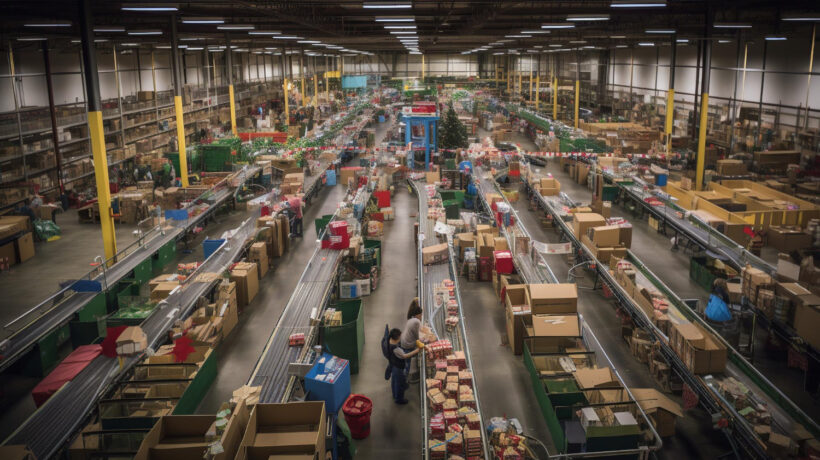India’s consumer goods market has been experiencing a significant surge in demand, driven by a burgeoning population, rising disposable incomes, and a growing middle class. So, this presents a golden opportunity for entrepreneurs with a vision to establish their own consumer goods factory in the country. However, embarking on this venture requires careful planning, strategic thinking, and an understanding of the unique challenges and opportunities that come with it. So, In this article, we’ll guide you through the essential steps to kickstart your own consumer goods factory in India.
Market Research and Feasibility Study
Before diving headfirst into establishing a consumer goods factory, it’s crucial to conduct comprehensive market research. Understand the specific consumer needs, preferences, and trends prevalent in India. Also, analyze the competition, potential target audience, and the geographic regions with the highest demand for your product category.
Additionally, perform a feasibility study to assess the economic viability of your project. Consider factors such as initial investment, operational costs, expected revenue, and the return on investment (ROI) over a reasonable time frame.
Choose the Right Product Category
Selecting the right product category is paramount. It should align with your expertise, passion, and the market demand. So, popular consumer goods categories in India include FMCG (Fast-Moving Consumer Goods), electronics, textiles, food and beverages, and personal care products. So, ensure that your chosen category has sustainable demand and offers room for growth.
Legal and Regulatory Compliance
Navigating the legal and regulatory landscape is crucial for any business in India. So, register your business entity, obtain the necessary licenses, and comply with local, state, and national regulations. Also, this may include environmental clearances, factory establishment approvals, and compliance with labor laws.
Location and Infrastructure
Choosing an optimal location for your consumer goods factory is critical. Also, factors to consider include proximity to raw material suppliers, accessibility to transportation networks, availability of skilled labor, and proximity to target markets. Additionally, invest in state-of-the-art infrastructure that ensures efficient production processes, quality control, and adherence to safety standards.
Supply Chain Management
Establishing a robust supply chain is essential for the smooth operation of your factory. So, Identify reliable suppliers for raw materials, negotiate favorable terms, and implement inventory management systems to ensure a steady production flow.
Technology and Automation
Incorporate modern technology and automation in your production processes to enhance efficiency, reduce costs, and improve product quality. Moreover, this may include adopting manufacturing software, implementing robotics, and utilizing advanced machinery.
Quality Assurance and Testing
Maintaining high product quality is non-negotiable in the consumer goods industry. Therefore, Implement stringent quality control measures and conduct regular testing to ensure that your products meet or exceed industry standards. This not only builds trust with consumers but also minimizes returns and rejections.
Marketing and Distribution
Develop a comprehensive marketing strategy to promote your consumer goods brand. So, this includes creating a strong online presence, leveraging social media, and potentially partnering with distributors and retailers to expand your market reach.
Sustainability and CSR Initiatives
Incorporating sustainable practices and corporate social responsibility (CSR) initiatives in your business model can provide a competitive edge. Additionally, consider eco-friendly production methods, waste management strategies, and community development projects to contribute positively to society.
Adaptability and Innovation
The consumer goods industry is dynamic and subject to rapid changes in consumer preferences and market trends. In addition, stay adaptable and innovative by continuously researching and incorporating new technologies, materials, and designs.
Starting your own consumer goods factory in India is a promising venture that can yield substantial rewards. By meticulously planning and executing each step, you can position yourself for success in this thriving market. Remember, perseverance, dedication, and a customer-centric approach are key ingredients for long-term sustainability and growth.
Disclaimer: This article is provided for informational purposes only and does not constitute financial, investment, or legal advice. The author and publisher are not responsible for any decisions made based on the information provided. Readers are advised to seek professional advice for their specific circumstances. Any reliance on the information in this article is at the reader’s own risk.
To read more, click here
Thank You For Reading, feel free to ask any questions in the comment section below.
Follow us on Social Media Platforms,
Click Here: Instagram, Facebook, YouTube, and Twitter
Stay Informed, Stay Responsible with My Finance World!










